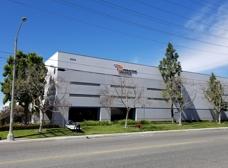In a world where time is of the essence and efficiency is key, the realm of logistics, transport, and shipping plays a crucial role in ensuring the smooth flow of goods across vast distances. Enter the world of proactive logistics, where strategic planning and innovative solutions come together to revolutionize the way we move products from point A to point B. Join us as we delve into the dynamic world of proactive logistics and uncover the secrets behind its success in today’s fast-paced global economy.
The Importance of Proactive Logistics in Supply Chain Management
Proactive logistics in supply chain management is crucial for ensuring the smooth and efficient flow of goods from point A to point B. By anticipating potential issues and taking steps to address them before they arise, companies can minimize disruptions and keep their operations running smoothly. This proactive approach involves carefully planning routes, optimizing transportation schedules, and closely monitoring inventory levels to ensure that products are always available when and where they are needed.
Another key aspect of proactive logistics is the use of advanced tracking and monitoring technologies to keep tabs on shipments in real-time. By harnessing the power of GPS tracking, RFID tags, and other cutting-edge tools, companies can stay informed about the status of their goods at all times, allowing them to quickly address any issues that may arise. In addition, proactive logistics can also help companies identify potential cost-saving opportunities, such as finding more efficient transportation routes or negotiating better rates with carriers.

Strategies for Efficient Transport Management
Efficient transport management is crucial for the success of any logistics operation. By implementing proactive strategies, companies can streamline their transportation processes, reduce costs, and improve overall efficiency. One key strategy is to optimize routes and schedules to minimize empty miles and maximize vehicle utilization. This can be achieved through advanced route planning software and real-time tracking systems.
Another important aspect of efficient transport management is maintaining strong relationships with carriers and suppliers. By forging partnerships based on trust and communication, companies can ensure reliable and timely delivery of goods. Implementing sustainable practices, such as using eco-friendly vehicles and optimizing load capacities, can also contribute to a more efficient transport operation.

Maximizing Shipping Efficiency through Technology Integration
Implementing cutting-edge technology in the logistics, transport, and shipping industry is essential for businesses looking to maximize efficiency and stay ahead of the competition. By integrating advanced software solutions, automated systems, and real-time tracking tools, companies can streamline their operations, reduce costs, and improve overall performance. With the use of AI-powered route optimization and predictive analytics, organizations can make data-driven decisions that lead to faster shipping times, fewer delays, and increased customer satisfaction.
Furthermore, the integration of Internet of Things (IoT) devices and blockchain technology can revolutionize supply chain management by providing real-time visibility into the movement of goods, ensuring secure transactions, and enhancing transparency. By leveraging these innovative solutions, businesses can create a more agile and responsive shipping process, enabling them to adapt quickly to changes in demand, minimize risks, and deliver superior service to their customers.

Sustainable Practices in Logistics for Environmental Conservation
When it comes to , a proactive approach is essential. This means taking the initiative to implement eco-friendly solutions throughout the entire supply chain. From transport to shipping, every step in the logistics process can make a difference in reducing carbon emissions and minimizing environmental impact.
One way to promote sustainable practices in logistics is by utilizing alternative modes of transportation such as electric vehicles and bicycles. By incorporating these green transportation options into delivery routes, companies can significantly decrease their carbon footprint. Additionally, implementing packaging solutions that are biodegradable or recyclable can further enhance environmental conservation efforts. Embracing innovative technologies and practices that prioritize sustainability will not only benefit the planet but also create a positive impact on the reputation of businesses in the logistics industry.
Wrapping Up
In conclusion, proactive logistics, transport, and shipping play a crucial role in ensuring the smooth and efficient movement of goods and products from one place to another. By staying ahead of potential issues and challenges, businesses can minimize delays, reduce costs, and enhance customer satisfaction. Whether it’s optimizing supply chains, utilizing advanced technology, or proactively managing risks, taking a proactive approach to logistics is key to success in today’s fast-paced and competitive marketplace. So, remember to stay proactive, stay ahead, and watch your logistics operations soar to new heights.
